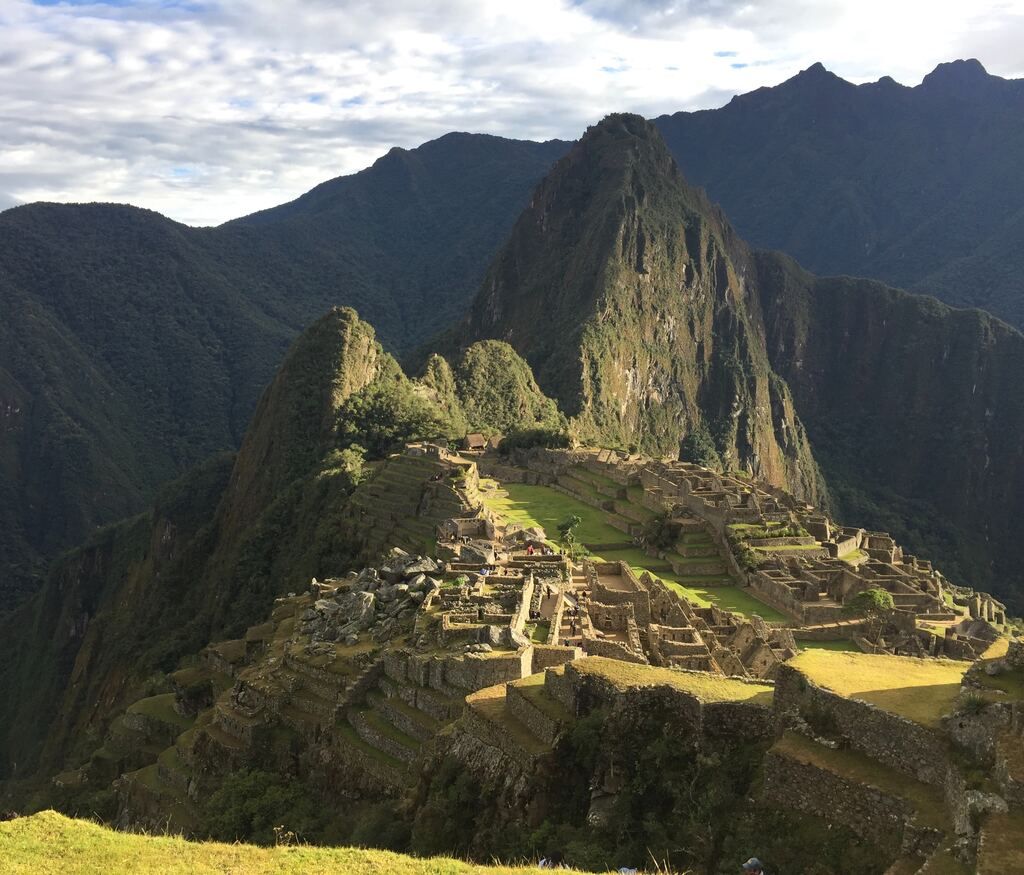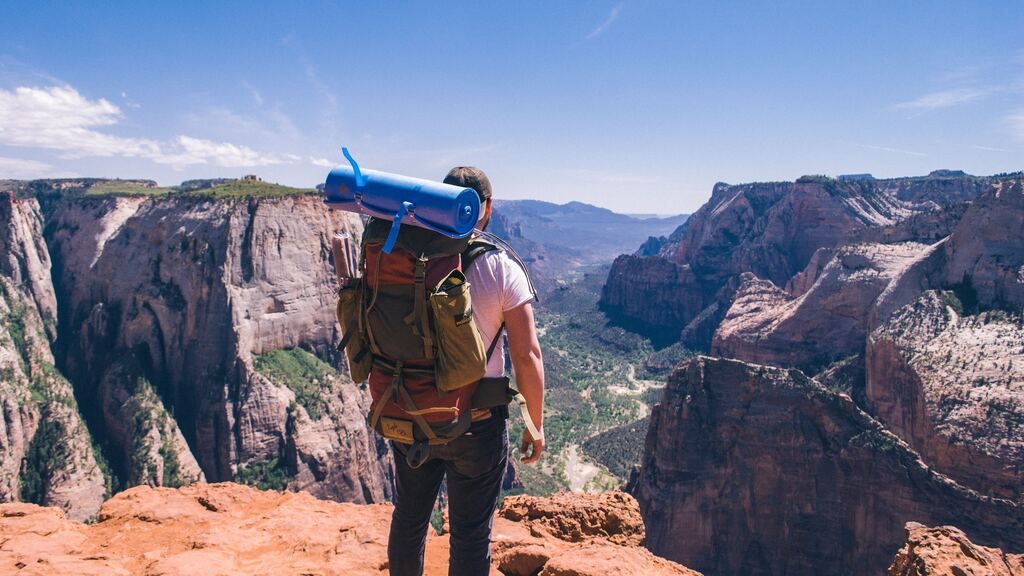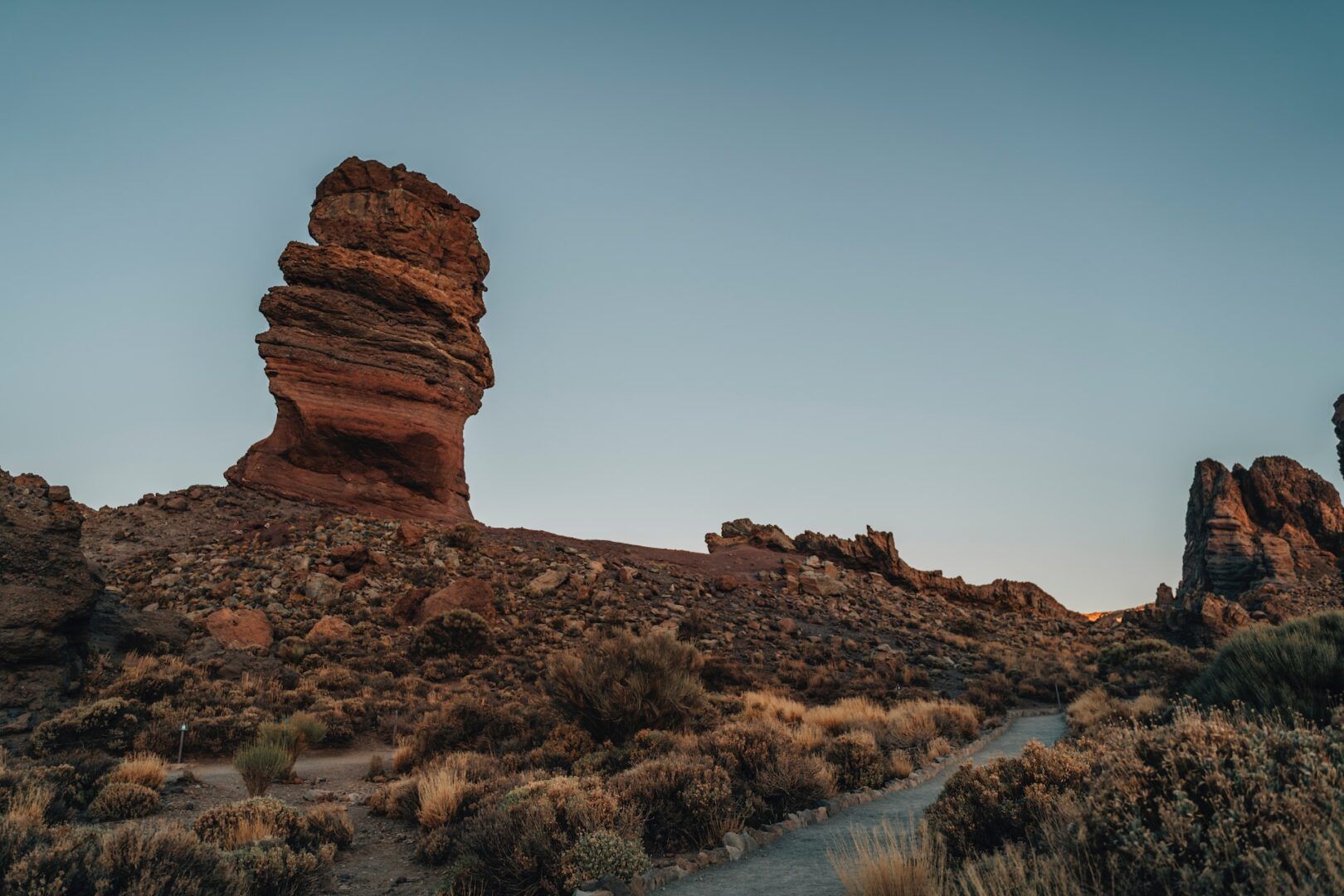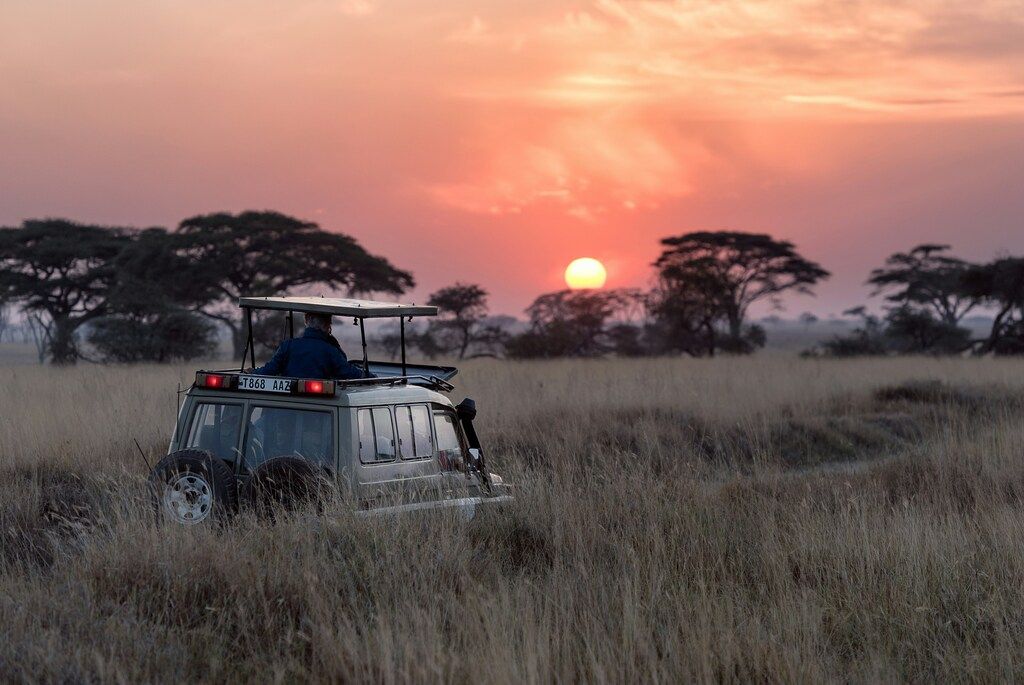

A safari holiday in Africa is one of those once-in-a-lifetime trips that so many of us dream of. If you’ve finally decided to take the plunge and are heading out into the savannah, you’ll probably have dozens of questions. Maybe you’re wondering what to wear, how to behave and how much to tip — or perhaps you’re worrying about whether or not a lion will eat you. Either way, read on for everything you need to know before you go!
What to wear on safari
Let’s start with a really common question: what are the best clothes for safari holidays? You don’t need to go all out and buy yourself a classic khaki safari suit and hat, but it’s worth thinking about why those items were invented in the first place. Neutral colours are important when you’re on safari. It’s not about making a fashion statement — it’s about not attracting the animals’ attention. Khaki, brown and beige are best. Don’t pop in beige? You’re just going to have to grin and bear it — you’ll forget all about it when you see your first elephant, we promise. Whatever you do, don’t wear white, as it stands out clearly in the savannah, so animals will spot you and may keep away.
It’s also a good idea to bring lots of lightweight layers. Most safari holidays involve waking up very early or going to bed late since animals are most active at dusk and dawn. Those early mornings are often chilly, but the daytime can be extremely hot. It’s a good idea to take clothes you can layer and easily peel off when you need to. Hot weather means that loose-fitting clothes are best — and there’s another reason for that, as you’ll soon see…
Prepare for mozzies
What’s the worst animal you’re likely to see on an African safari? Why, the humble mosquito, of course! These little blood-suckers can really ruin your day, so prepare for their presence. Bring mosquito repellent with you, and lots of it. Remember that mosquitoes tend to be most active in the evenings and often hang out near water. Of course, you’ll need mozzie spray wherever you go — but be particularly vigilant if you’re waiting near a waterhole to spot some bigger, more welcome animals.
Mosquitos are inevitable on a safari, which is another reason why we recommend loose-fitting, long-sleeved clothes rather than hot pants and crop tops. The less skin you have exposed, the less likely it is that you’ll get bitten. At night, make sure to cover your bed with a mosquito net and look out for any holes or gaps that resourceful insects can sneak through.
Get ready for the sun
Back in the comforts of your home, you might think of yourself as a bit of a sun-worshipper. That will change soon. When you’re out in the blistering heat of a Tanzania, South Africa or Kenya safari, you’ll soon be begging for rain — or at least some cloud coverage. Take a sun hat with you and make sure you have plenty of water. Apply sunscreen liberally. On this kind of holiday, sunburn is not just uncomfortable, it’s agonising.
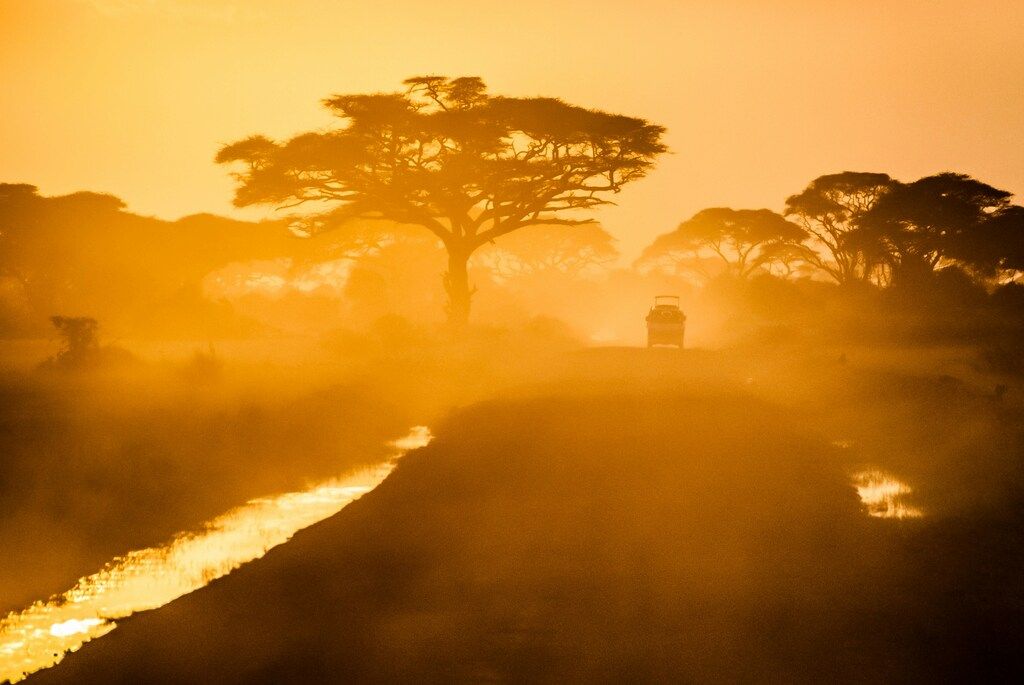
Health comes first: make sure you’re fit for travel
An African safari isn’t usually a spontaneous, last-minute kind of holiday. You’ll probably start planning months in advance, which is a good thing, as it gives you plenty of time to go to your doctor and check what vaccinations or tablets you need. This will vary depending on where you’re going. In many countries, the risk of malaria varies by region. For example, a lowland Tanzania safari comes with a high risk of malaria, while a highland trip carries a much lower risk.
To avoid picking up any bugs while you’re travelling, only drink filtered water. The easiest way to do this is by using a reusable water bottle with a built-in filter. You should buy one before you leave home, as you may not be able to find one at your destination, and you could waste precious hours searching the local shops. Travellers with sensitive stomachs may also prefer to brush their teeth with filtered water. It may feel a bit fussy, but it’s a better option than searching desperately for a toilet in the middle of the South African bushveld!
Protect your camera
African safari holidays are a popular choice for budding photographers. After all, you’re going to see some of the most amazing scenery on the planet — who wouldn’t want to capture that on camera? However, before you get too carried away, think about the practicalities. Dust can be extremely damaging to a camera, and there’s a lot of dust on safari. If you’re travelling during the wet season, you’ll also have rain to contend with.
Don’t leave home without a lens hood for a DSLR camera. Between shots, keep your equipment carefully covered with a t-shirt or cloth. Riding in a jeep along bumpy roads is a surefire recipe for dust everywhere, so you’ll want to keep your camera safely tucked away when the vehicle is in motion. Finally, don’t get too close to animals in search of the perfect shot. Some will get scared and run away, but others may respond boldly, not to mention monkeys and apes might even steal your precious camera!
If photography is your main goal, you might even consider a dedicated photo safari trip. This way, you’ll be surrounded by other passionate photographers, and you’ll probably move more slowly, giving you more time to get that perfect shot.
Choose your destination wisely
Every African safari is different. Of course, wild animal sightings can never be totally guaranteed — some creatures are present in certain areas but not in others. If there’s a particular animal you’re dying to see, then make sure you do your research first. That way, you know you’ve got a good chance of spotting it.
The Serengeti is one of the best places to see lions, while enormous herds of herbivores are a common sight in Kenya’s Masai Mara. A South Africa safari holiday is a great choice if you’d like to do some bird spotting, as there are more rare birds in this part of the continent than in East Africa. If you’re a safari buff with plenty of experience, try something unusual like Namibia’s Etosha National Park, home of endangered black rhinos. You can also head to Kenya’s Samburu Game Reserve, a desert region with groups of rare antelope that you can’t see anywhere else.
You should also pay attention to the time of year. The wet season and dry season both bring their own pros and cons. If you’re travelling to Kenya and Tanzania, the annual Great Migration takes place between July and October. This has been called the greatest show on earth, and for good reason. It’s a spectacular annual event that sees 1.5 million wildebeest and 200,000 zebras move in search of fresh grass, bringing all kinds of opportunistic predators with them.
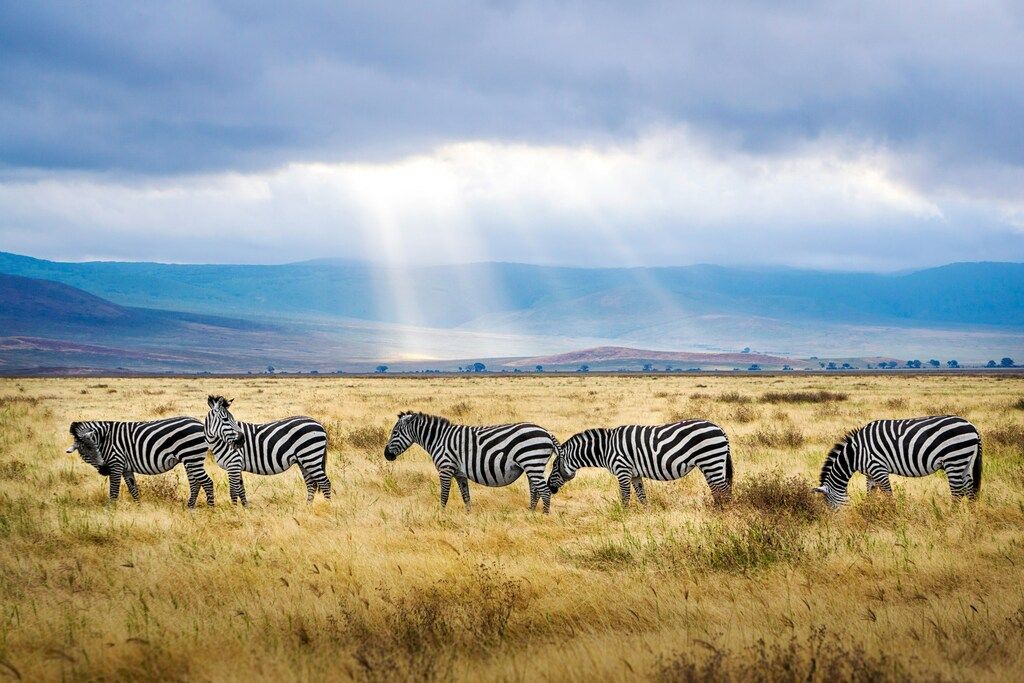
Tipping on safari
Tipping can be a thorny issue wherever you go. On an African safari, tipping is optional. Countries like South Africa, Kenya and Tanzania have not fully embraced American-style tipping culture, and nobody will chase you down or demand payment for service. Still, it’s worth keeping in mind that the locals you meet have a much lower monthly wage than Westerners. As such, if you can afford to tip as a sign of goodwill, your gesture will be very welcome.
Safari veterans suggest a tip of around £5 to £10 per day for each person you would like to tip. You should give your tip directly to the person in question, which might be the guide, cook or housekeeper. On a private safari or one with smaller groups, you might be inclined to tip more.
Make sure you have plenty of local currency, as safaris will usually take you far away from cities into areas where credit cards are not commonly accepted. South Africa uses the rand, while Tanzania and Kenya both have a currency called the shilling. Tanzanian shillings and Kenyan shillings are not interchangeable, so if you’re taking a multi-country trip through East Africa, make sure you have enough of both currencies.
Think about how you’ll get around
Most safari trips offer game drives in a jeep. This is a great way to cover a long distance in a short period, so you’ll be able to see far more nature. Talk with your guide or other local experts about the best time of day to go out on a game drive. You’ll need to go after dark to see nocturnal animals, and the most exciting drives will often be first thing in the morning or just as the sun sets.
Some safari parks also offer tours on foot, which can be more exciting than taking a jeep. Your African safari guide may teach you how to track animals by identifying their prints and their stool and give you other safari tips to make the most of the experience. However, these are not available in all parks and always make sure you follow the staff’s instructions. If people tell you to stay in the car, they are probably concerned about your safety.
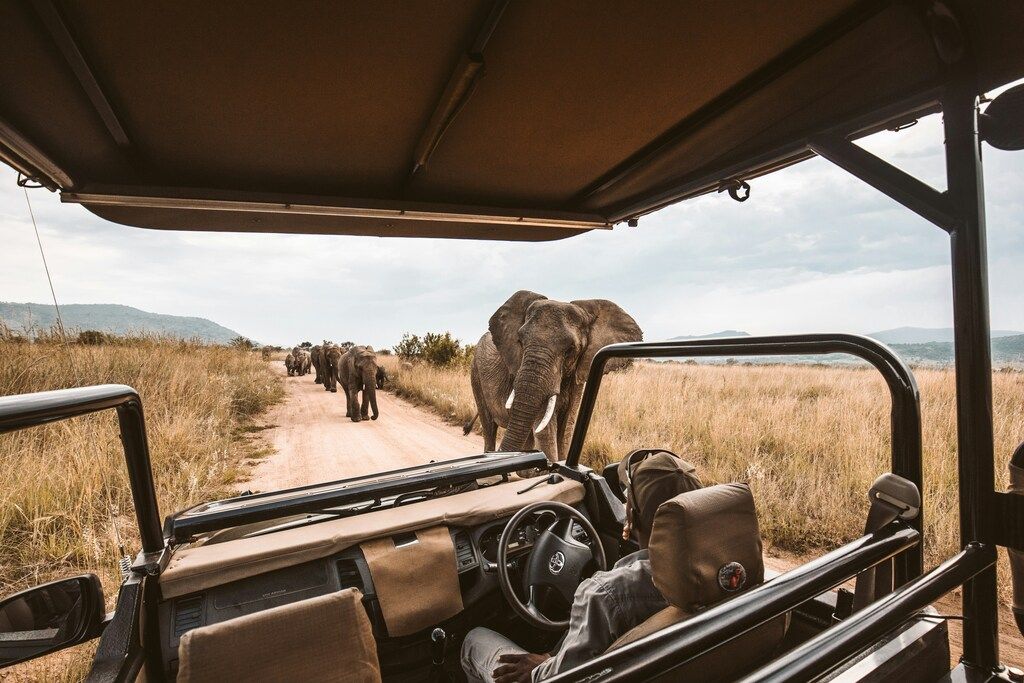
Stay safe around wild animals
Wild animals are always unpredictable. The vast majority of tourists on African safari holidays go home without a scratch, but there’s always the chance that something will go wrong.
The most important rule is to remain calm if you find yourself face-to-face with wild animals. Unless you’re Usain Bolt, there are very few creatures that you can outrun — even sluggish-looking beasts like elephants and hippos can turn up the gas for short distances. Also, don’t feed the animals unless you have local staff supervising you. Remember, even the cutest animal can suddenly turn on you. If a monkey steals your sunglasses or phone, it’s best to let him have it. If you try to snatch it back off him, he’s likely to bite you.
The best way to avoid unpleasant interactions is to keep a respectful distance from the animals that you see. Keep in mind you’re a visitor in their home, so let them make the rules.
Are you ready for your safari adventure? Check out our options for trips to the best African safari destinations. See you there!

